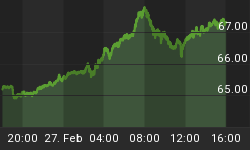With regulators across the globe beginning to crack down on ICOs, startups are beginning to err on the side of caution. Risks are becoming more and more apparent, and private funds becoming more plentiful. In many cases, promising young companies are forgoing the public ICO altogether, choosing instead to distribute tokens for free in exchange for social media publicity or simply seek the aid of high net worth investors.
Telegram
One of the most notable ICOs that has officially skipped its public offering is Telegram. Despite this news, the messaging app already enjoys the position of first ever billion-dollar ICO. In total, Telegram has raised over $1.7 billion in sales through fewer than 200 accredited private investors, as confirmed by recent SEC filings.
Telegram has seen a lot of press lately. Due to the encryption and privacy of users’ data, Telegram was used by protesters during unrest in Tehran earlier in the year. But privacy isn’t exactly a desirable feature for some governments.
Recently, Iran joined Russia in a push to ban the app, suggesting that it was being used to conduct illegal activity, though this hasn’t exactly gone over smoothly. In Russia, thousands even gathered in protest of the government’s decision.
In the face of the high-profile crackdowns on the messaging service, however, Telegram has only gained speed, securing both the attention and the funding that it needed to move forward. And with regulatory agencies worldwide scrutinizing ICOs, it’s clear why the messaging giant is ditching its public ICO. Related: Bitcoin Mining Is Booming In Eurasia
"The goal of fundraising is to gain access to capital to allow a team to build a product and company. It appears Telegram has already achieved their goal so there would be no reason to conduct a public sale," explained Anthony Pompliano of Morgan Creek Capital Blockchain.
Telegram had previously remained silent regarding the possible delay or outright cancelation of their public offering, but Wednesday’s announcement from a private source published on the Wall Street Journal confirmed these suspicions. The Journal, citing another source, even suggested the cancelation was due, in part, to escalating scrutiny from regulators.
Ramping Up The Regulatory Crackdown
Last year, the U.S. Securities and Exchange Commission (SEC) labeled a number of tokens as securities. In fact, Jay Clayton, the head of the SEC, has noted "I believe every ICO I've seen is a security.” And in February, Clayton took it a step further, stating “Many ICOs are being conducted illegally. Their promoters and other participants are not following our security laws.”
As securities, investors must be ‘accredited’ in order to take part in the ICO. This ruling is because of worries that ‘regular’ investors may not have the knowledge to adequately weigh the potential risks involved.
Regardless of the potential risks, however, many startups are still moving forward with crowdfunding campaigns, looking to capitalize on the $8.7 billion ICO trend that has revolutionized for-profit fundraising.
While this laissez-faire approach has paid off for some, it has landed many in hot water, including the Floyd Mayweather endorsed $32 million crypto venture Centra, whose two Miami-based founders were arrested for fraud in early April.
It’s not just celebrity-sponsored projects under a microscope, either.
Back in December, when the crypto-market was soaring, Overstock.com announced the ICO plans of its subsidiary, tZero, a blockchain/crypto company with hopes of raising $250 million. The company fell under fire in March, with an SEC investigation into its fundraising practices. Maintaining that it has remained compliant with SEC rules and only accepted funds from accredited investors, tZero has pushed on with its offering, though it did extend the end date to May 14th, 2018.
Overstock.com has even spoken out against the actions taken by the SEC against its subsidiary, stating: “The investigation could result in a delay of the tZero security token offering, negative publicity for tZero or us, and may have a material adverse effect on us or on the current and future business ventures of tZero.”
Accredited Investors
Big money has been in the crypto space since the beginning, but 2017’s uptick in prices has completely changed the game. And as the space becomes more popular, especially the wild world of ICOs, institutional investors are jumping in at an unprecedented pace.
Institutional investors are accredited investors – individuals, banks, brokers, and trusts that fulfil certain financial requirements.
For individuals to meet these requirements, they must earn over $200,000 for two years straight before applying. Additionally, an individual may be accredited if their net worth exceeds $1,000,000. Related: Will This Tech Giant's Blockchain Pivot Pay Off?
For entities to become accredited, the company must possess over $5,000,000 in assets.
The purpose of these requirements is to protect companies and individuals from the inherent risks of investing in unregistered securities or private placements.
This is important because, even if a startup moves forward with a ICO, many larger projects are sticking to the SEC’s rules, requiring all investors to be accredited, significantly reducing, or outright destroying the opportunity for ‘regular’ investors to secure their place in the offering.
The Future of ICOs
Unfortunately, the space has become bogged down with schemes, poor products, and flat out thievery, and the need for supportive regulation is clear. But the more regulators enforce these rules which remove opportunity from the ‘little guy,’ the more it perpetuates the economic cycle that has squeezed out the middle class and concentrated wealth into the hands of the few.
It remains unclear whether or not other companies will follow Telegram’s lead and ditch their public offering plans, but the regulatory risks are becoming increasingly palpable. If there is not some sort of reversal on SEC decisions, startups might forego the process altogether, putting the industry’s investments back in the control of big banks and VC funds whose irresponsible spending and market manipulation fueled some of the worst economic downturns in history.
By Michael Kern via Crypto Insider
More Top Reads From Safehaven.com:
















